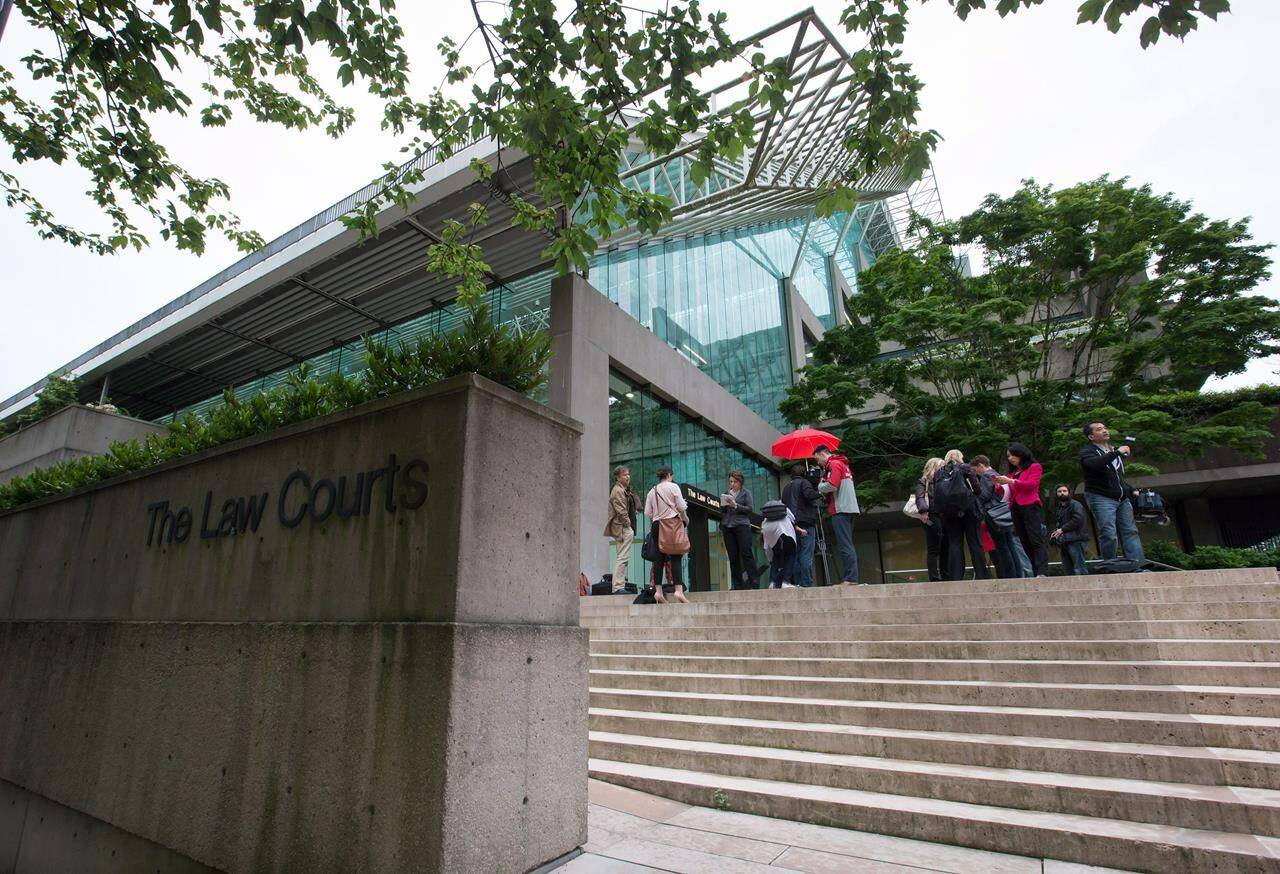A Kelowna jury heard an emotional plea for freedom from a man who has spent the last 18 years of his life behind bars for first degree murder on March 29.
“I’m in front of you today because I killed Douglas Kuntz,” said David Poirier, dressed in a sweater and collared dress shirt, while on the stand in court.
Poirier pled guilty and was convicted of the 2003 first degree murder of Douglas Terry Kuntz.
Kuntz, was found shot to death on the floor of his garage in Winfield, after a hit was called on him to settle a debt. The victim was a businessman who allegedly owed approximately $300,000. During the trial, the Crown alleged the theory that Poirier was told to kill Kuntz.
When the body of Kuntz was discovered, two un-negotiated cheques amounting to a sum of just over $300,000 were found in his clothes.
As the result of an undercover operation, a B.C. Supreme Court judge ruled there is evidence that Poirier and colleagues Joshua Fell and Paul Roop were involved in the murder.
READ MORE: Mission Institution: Voices from inside Canada’s worst COVID-19 prison outbreak
Poirier is now applying for a Judicial Review which, if approved, would reduce the number of years of imprisonment he will serve without eligibility of parole. If Poirier’s plea to the jury is denied, he will have to wait until the 25th year of his sentence to make an application for parole, which can still then take several years to be approved.
As part of the review process, people charged with life sentences take the stand and make a plea to a jury. Witnesses that typically include family members and people they have had contact with while incarcerated, will also take the stand to prove that the criminal is reformed and not at risk to reoffend.
If the applicant’s request is approved by the jury, the prisoner can then apply to their parole board on a date decided on by the jury. An inmate would still likely spend another one or two years in prison while navigating the lengthy application process before being approved by the parole board, explained Poirier while on the stand.
During his time in prison, Poirier’s son died, and he said that it is a result of his actions.
He said that during one of his last phone calls with his son, he said “Dad I’m not doing so good.”
Poirier said that while in custody there was very little he could do to help his son. Despite working with social services and supports, he couldn’t be there for his son while he was behind bars in the way that he wanted to.
Shortly after the phone call, his son was arrested for possession of a gun and ended up overdosing on fentanyl in jail.
“Losing my son was the biggest price to pay.”
While working through the loss of his son Poirier said he realized how much harm he has caused and how he has impacted people from the family of Kuntz, to his ailing mother, his ex-wife who relapsed during his time in prison and his son.
He wants to help take care of his elderly mother.
“The gang life caused so many people pain… I’ve done enough damage… My main focus now is to give back.” Poirier hopes to use the skills he has learned over the last 18 years to help others, particularly youth, who are going through a tough time.
Poirier is currently imprisoned at a medium security prison after being transferred from the maximum and will move to a minimum security facility in the near future.
He explained that after a period of good behaviour prisoners are able to apply to be transferred, and in facilities with less security, comes more freedom to make positive changes on their lives.
He works at the prison and is “eager to work and learn.”
Poirier expresses himself through art and said that he spends hours each week painting as a way to cope with his trauma.
He also practices mindfulness, meditation and exercise and is looking forward to the increased freedom to practice his passions.
He hopes to share the tools he has learned with troubled youth to help steer them away from a life of crime.
Poirier said that he is deeply sorry for the pain he caused Kuntz’s family and is ready to give back to society.
“I hope that you will consider reducing my parole eligibility so that I can start my second lease on life.”
@Rangers_mom
Jacqueline.Gelineau@kelownacapnews.com
Like us on Facebook and follow us on Twitter and subscribe to our daily and subscribe to our daily newsletter.

